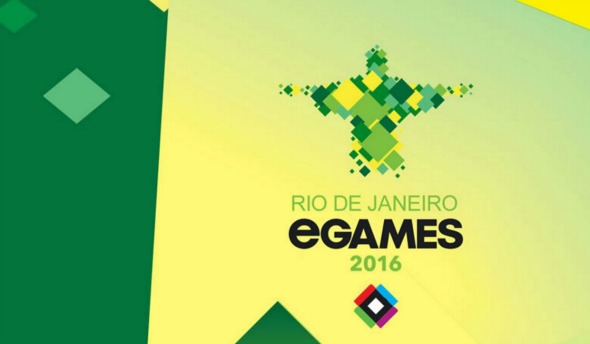EXCLUSIVE: The state of eSports
July 25, 2016
eSports is undergoing a level of growth most traditional sports can only dream of. In a few short years, it has transformed from a minor event to a sporting heavyweight – with investment and income to match.
Chester King is CEO of the International eGames Group – a company set up to assist the International eGames Committee (a not for profit) aimed at growing elite competitive video gaming (eSports) and shaping the future competitions: by creating a new global, medal only, competition – The eGames – where gamers compete for their country.
King outlined that the industry is closer than ever before to being acknowledged as important as a traditional sport, but there are still some final hurdles to clear:
“Everyone talks about eSports being the largest niche, what’s happening is that we are getting rid of the smokescreen of what actually is eSports and improving its creditability. If you take the video game industry as a whole, it turns over about $80 billion, eSports is about half a billion – the competitive event element. I think what’s happening is a lot of people and sponsors from traditional sport are aware that the demographic of the people who are playing and watching are the hard to reach demographic – the people who don’t watch TV anymore.”
Miles Jacobson, the studio director at Sports Interactive, who make the Football Manager series, agreed with King’s comments:
“Advertisers are really taking games seriously now, as they realise the amount of eyeballs they can reach… I think people in the sports industry need to take an interest, because eSports is talking to an audience that, at the minute, you’re struggling to get to. If you go to a football stadium or a rugby stadium, the audiences tend to be quite old, compared to when I was growing up, when it was mainly kids.”
Conversely, stadiums are now starting to sell out hosting eSports events, breaking new ground. Events are proving that live video gaming, either in stadiums, streaming, or on TV, is viable.

“Stadiums have started to sell out.” explained King. “In Poland there was an event called the Intel Extreme Masters. 120,000 people watched it live. But 25 million people watched it online, and ESL, a great eSports company, did the production on that.”
The rise of Twitch has also been key to the growth of eSports. Twitch allows gamers to broadcast their session online to anyone in the world. It has led to millions tuning in to watch the world’s top players showing off their skills, some pulling in audiences that TV channels would kill for. King explains how Twitch has also opened up elite-level eSports to a generation of viewers who have never played the games in question before:
“Twitch has been brilliant. It was bought by Amazon for around $1 billion and with the exposure from social media it has educated people about all the different games. I think the stats are that about 40% of the people who are watching a game have never actually played that game. But they are interested in watching competitive play.”
But still the greatest challenge the industry faces is from older authority figures, who don’t see what eSports has become. Because so many of eSports’ fans and star players are under the age of 20, their involvement in the sport is dependent on the support of teachers and parents. King wants to see a better understanding develop of what skills eSports can offer young people:
“I think the key thing is the life skills you get by playing eSports. Certain games are even better than chess – and you’ll never get a parent saying ‘Oh you’re playing too much chess!”. Obviously in moderation. At the elite level, their concentration levels are incredible, their response times are incredible. It also develops life skills like leadership, communication, cognitive response and dexterity.”
“We have chess clubs at schools, we should have eSports clubs at schools. Obviously, not all games are appropriate, but everything in moderation. What we are trying to promote is eSports can be part of a balanced life. You have traditional sports and eSports.”

The younger generation may have been won over, and are flocking to eSports in huge numbers. But for King the next battle is in the grass roots – where will the gamers of the future will come from, and are they being hindered, rather than nurtured, by authority figures around them. For King that’s where the next battle lies – for acceptance in wider society, to see the benefits eSports can bring to young people:
“It’s important for parents to acknowledge that it is good for you. At the moment, in my personal view, it is treated like a silly game, so parents think it is a waste of time. But if people knew that it was better for you than chess, and it’s good for future cyber skills, and cyber professionalism in the future, you could get a career from that.”
The eSports world is growing, and growing quickly. Jacobson said that it was “neigh-on impossible” to predict where the industry will be in 5 years as it is expanding so quickly.
But Chester King and the International eGames Group will likely be at the forefront of that growth – trying to remove obstacles on behalf of the industry as it reaches new heights.
{jcomments on}


